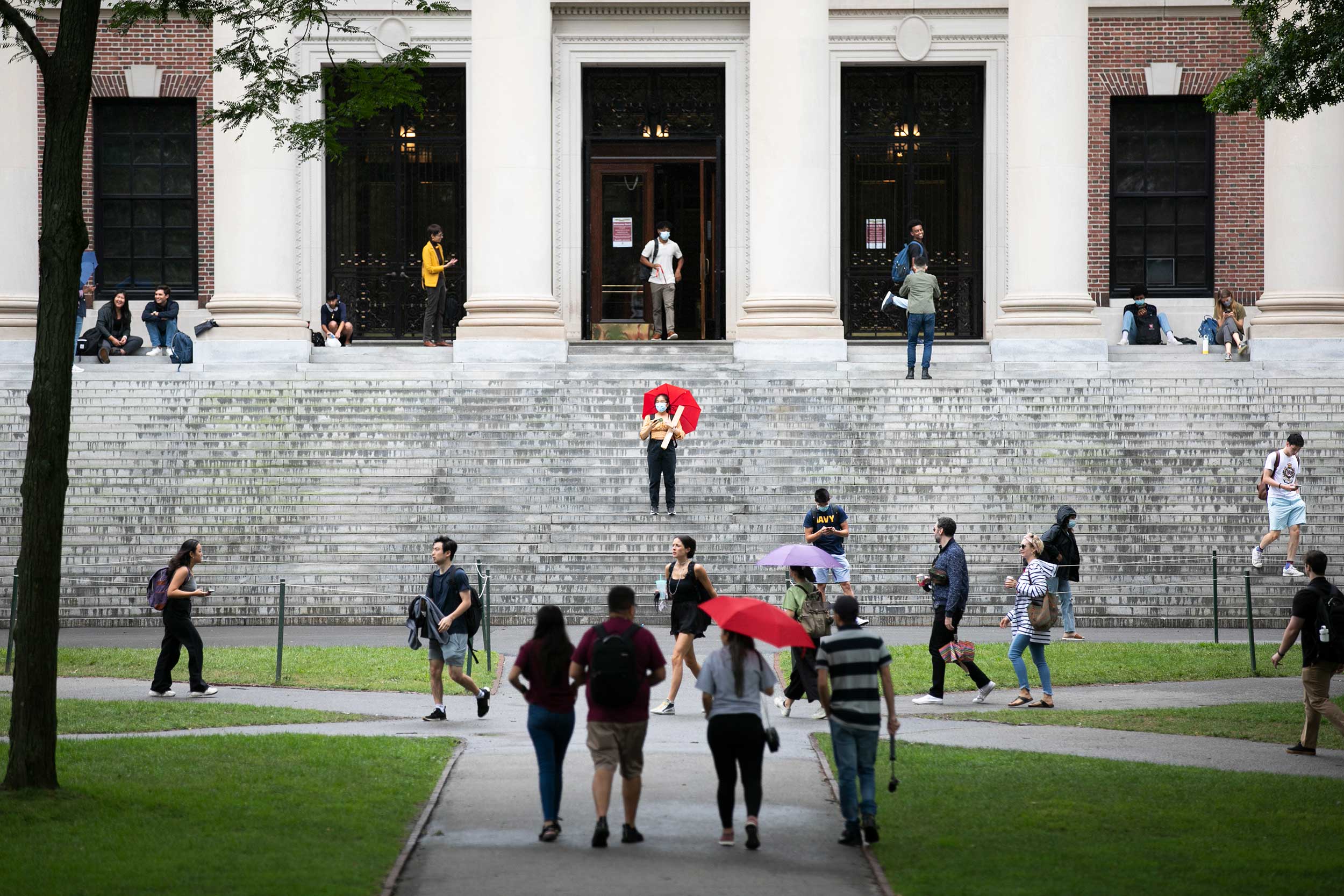
The Harvard Culture Lab Innovation Fund program provides seed grants to create projects that advance diversity, equity, and inclusion on campus.
Stephanie Mitchell/Harvard Staff Photographer
Harvard walks its talk on diversity, inclusion
14 proposals win diversity, inclusion grants from Harvard President’s Office
Fourteen campus proposals have been selected to receive Harvard Culture Lab Innovation Fund (HCLIF) grants.
“I’m inspired by the dozens of creative grant proposals that we received and I’m excited to see how this year’s round of grant awardees will bring their inclusion ideas to life,” said Sherri Charleston, chief diversity and inclusion officer. Charleston heads the University’s Office for Equity, Diversity, Inclusion, and Belonging, which administers the grants.
Launched in 2019, the HCLIF program provides seed grants for students, staff, faculty, and postdocs to create projects that innovatively advance diversity, equity, and inclusion on campus. Funded proposals span a wide range of topics, each with the common goal of addressing critical issues around equity and inclusion at Harvard. A few examples include:
Disability Kindness Training Videos, which leverage the expertise of Harvard’s disability community to produce disability etiquette training videos.
In Our Own Words: Stories That Honor the Heritage, History, and Humanity of the AAPI Community, which will collect and share Asian, Asian American, and Pacific Islander stories with the aim of healing and rebuilding those communities in the wake of the COVID-19 pandemic.
Instructional Moves 3.0: Educating for Equity and Inclusion enables educators to see powerful equitable and inclusive pedagogical practices at work in Harvard classrooms and transfer those skills to their own teaching contexts.
“Members of our community are truly the experts on what needs to be done in their local communities, and how their initiatives can scale to benefit the broader University,” said Charleston. “These grants represent a shared commitment from leadership and community members across Harvard to advance a culture of equity and inclusion.”
Grant awards range from $2,000 to $20,000 and are funded by the Office of the President. Recipients will also receive project support and advising from senior leaders and innovators across Harvard.
This year’s other 11 projects are:
The Art of Inclusive Environments aims to ensure that all who enter Harvard’s buildings have the opportunity to experience the benefits of culturally diverse visual environments.
Broadening Harvard’s History in Its Visual Culture will empower students to research and design signage about Harvard’s past to create more inclusive campus visual culture.
Dear Loneliness is a crowdsourced art exhibit, research study, and archival effort to record the cultural impact of COVID-19 while raising awareness about mental health.
Diversity and Racial Literacy Course Redesign Project will establish a process model to incorporate racial literacy content and learning objectives into existing and newly developed Harvard Chan School courses.
Harm to Harmony: Community-Based Harm Prevention, Intervention, and Response will provide information sessions, mobilize a restorative justice collaborative, coordinate training, and support the creation of community-based norms and practices of accountability to prevent, intervene, and respond to harm.
Harvard University Peer Coaching Initiative will help graduate and undergraduate students listen to each other, providing a space for “calm reflection and honest reckoning.”
HEALING Attempt: A Music-Based Mindfulness Intervention for the Black Harvard Community is a music-based mindfulness intervention that aims to alleviate stress/anxiety and increase self-compassion for Black students, faculty, and staff.
Learning Series on Anti-Oppression is a series of workshops that brings together a wide range of student-facing staff members as a community to create an equitable living and learning College environment.
Next Gen Initiative effectively addresses first-generation, low-income student experiences through the innovative use of existing University resources and services.
Pronoun Data will gather and use pronoun data in a standardized and simplified way to help people interacting across the University address each other respectfully.
Sustained Commitment to Diverse Supplier Inclusion: The Foundation for Supplier Diversity Growth proposes the creation of a central Supplier Diversity and Inclusion tool containing certified diverse suppliers, searchable and filterable by diversity type, service/goods, ethnicity, and other criteria required by the purchasing community.




